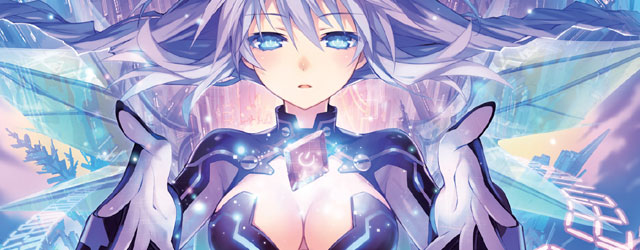[tab:Review]
I have played every Hyperdimension Neptunia game that has been released. I really didn’t like the first game, but the sequel surprised me by how well it was made. I never would have thought the series would garner a second entry, let alone a third game, but much to my surprise here I am playing Hyperdimension Neptunia Victory.
For anyone that doesn’t know, the Neptunia series takes place in a land called Gamindustri. This land is ruled by goddesses that represent real world video game consoles. The main character, Neptune represents the Sega console of the same name. Yes, the Neptune never came out. Take that as you will. The goddesses rule over their lands and work to keep their citizens happy.
Victory takes place after the events of Hyperdimension Neptunia Mk2 (the second game in the series). Neptune has been sent back in time to before she was a goddess, and many of her friends have no idea who she is. She must now travel to different time periods during the “console wars” and stop the evil group, the Seven Sages, from eliminating all the goddesses.
Victory uses a battle system similar to Hyperdimension Neptunia Mk2 and Mugen Souls, with a few changes that I didn’t care for. During battle, the party members have a set radius to move around. Once in range of an enemy, the character can choose to attack with either standard or special moves. Standard attacks feel similar to those found in the very first Neptunia game. Victory uses a simplistic combo point system that allows players to choose attacks to map to the triangle, square and X buttons. Each attack uses a set amount of CP when equipped so choosing the right combo for a button is what matters. I found myself using the same combo over and over again, because it was the one that did the most damage. The CP system really takes a lot of strategy out of creating combos. That disappointed me due to how much I enjoyed the flexible AP system of Mk2. Much like the previous games, the party members that are goddesses can transform to become even more powerful in battles.
After a battle, party members are awarded experience points, and leveling up increases stats and allow characters to learn new abilities. Leveling seemed to go by rather quickly, which actually helped out the game a good amount. Grinding was not much of an issue, which was a pleasant improvement over Mk2. As long as I didn’t run from a battle, I had enough experience to take on boss fights. That’s not to say these bigger encounters weren’t annoying. An absurd number of bosses in the game seem to regenerate health after turns. This made the fights very tedious. It never got overly difficult, but they were time consuming.
Most of the mechanics from Mk2 are present here in Victory. The ability to partner up party members for better stats returns, and the fetch quest system remained the same. The awkward item crafting makes a return. After creating an item using found materials, it becomes available to purchase in the store. That makes no sense. This is all carried over from the second game. In fact, not only are mechanics carried over, but environments, enemies, music and models are repeated into Victory. It almost feels like a copy and paste job in some areas.
What really changed is the story. Neptune runs into the other goddesses during her time traveling adventure. Of course, they are younger and inexperienced, and many other new characters come into play. The cheeky dialog and jokes on the gaming industry are all still here, and some of them even made me chuckle. The voice acting is well done, even though there are some really annoying characters that I just couldn’t help but to skip their dialog.
The game is a rather long experience. Since Neptune is covering all of the console wars in her travels, this game can easily last players well past the 40-hour mark. While I feel it doesn’t hit the mark quite as well as Mk2 did, I still think Victory is leaps and bounds better than the first game. The humor is good in many scenarios, and the subtle nods to other video games and characters are always welcomed. The battle system, while simplistic, significantly reduces the strategy that was present in Mk2, and many of the other mechanics are reused verbatim from the previous game.
Hyperdimension Neptunia Victory is in the middle as far as how well it stacks up to the previous titles. I still prefer Mk2’s battle system over Victory’s simplistic nature. The story and character interactions are well improved in Victory, and these aspects kept me playing. Victory is not a bad game by any means, but it is a clear example of changes made in all the wrong places.
Review copy of game provided by publisher.
[tab:Screenshots]
[tab:END]


Arc†icNinja21
I wonder who were the characters you said you found annoying.
FrustratedFury
Are you asking me or are you suggesting?
Arc†icNinja21
“The voice acting is well done, even though there are some really
annoying characters that I just couldn’t help but to skip their dialog.” I was asking who the characters were out of curiosity. Sorry I wasn’t clear.